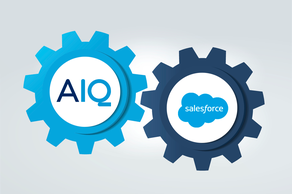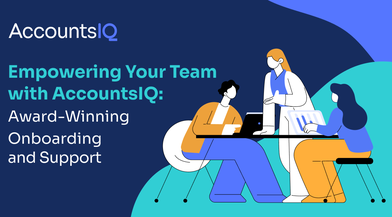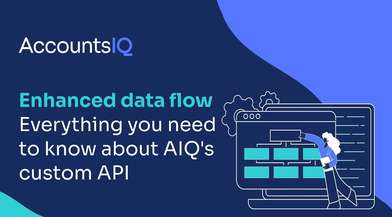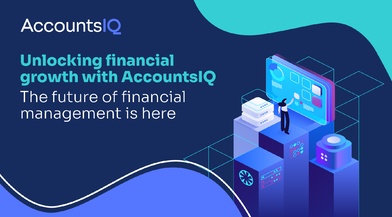
If you’ve ever heard the term “API” mentioned, you might have dismissed it as something for the IT department to worry about. But did you know that APIs are relevant to accounting, too?
We’re here to show you why APIs in accounting matter, and how an open API could help you to build your business and work more efficiently.
What does API stand for?
API stands for Application Programming Interface. It’s a piece of jargon that may sound techy and complicated, but all it really describes is a way for one computer system to talk to another. The word ‘application’ refers to the software involved whilst the interface defines how the two applications communicate. An example of API would be having a map appear on your website from Google Maps or recent tweets embedded from Twitter — API allows different systems to work together.
What does API mean?
Put simply, an API is a set of instructions that allows developers to integrate apps with each other so that they can work together.
Some platforms offer ‘open APIs’, giving away their development code to anyone who wants to use it. For example, Facebook is a platform that makes its API open to developers. The developers are then able to use the right code to build apps for use on that platform. If you’ve ever played Scrabulous or other games available on Facebook, then you’ve benefited from an API. That’s a trivial example, but APIs have a far wider scope than gaming and social media, with the potential to simplify and streamline your working life.
Integration with development partners
At AccountsIQ, our open API makes integration easy with other apps that your business might use on a day-to-day basis. This means that your software can work efficiently for you, reducing your workload and making your to-do list more efficient across the different areas of your business.
We have a range of development partners whose software works with ours, including Salesforce, BrightPay Payroll and Autoentry. Integrated accounting software makes it really simple to automate many functions, by accessing accounting information straight from your sales data, for example. This is all done thanks to our open API integration platform, which makes it easy for any third-party application to link with us.
APIs in the world of finance and banking
Open APIs are a big topic in banking and accountancy at the moment. Following the introduction of PSD2 in April 2018, a new process known as Open Banking allows intermediaries to process payments directly instead of going through the banks. How is this done? By accessing customer banking details themselves, using a secure open API that allows different computer systems to work together.
This represents a significant change for the way transactions are processed, and could be a big opportunity for growth and development in many businesses.
APIs in the age of cloud accounting
If you’re an accountant, IT may not be a key part of your skillset. But in the age of cloud accounting, it pays to understand what information technology can do for you, and the business benefits it can bring. If there’s one message to take away from this, it’s that your choice of software isn’t always just an IT matter – it’s often a critical strategic decision that will have an impact on future of your business.
System Integration in the Cloud whitepaper
AccountsIQ has created a guide to system integration in the cloud in conjunction with AccountingWeb.
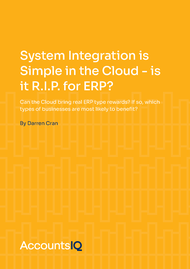
In this guide we explore the impact integration strategies in the Cloud software market (and the low cost of entry) might have on the multi-billion dollar ERP space. Can the Cloud bring real ERP type rewards? If so, which types of businesses are most likely to benefit? Download this guide now to read more.
Download System Integration whitepaper
